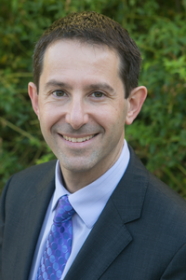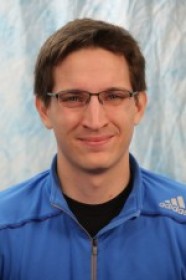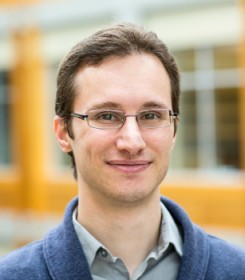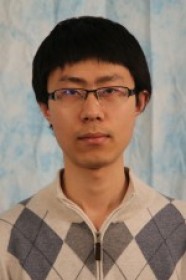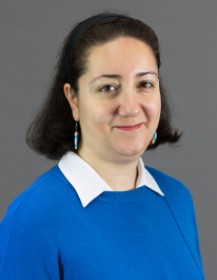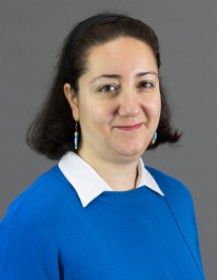Stabilizing the Unstable Brain
Noah Cowan Associate Professor of Mechanical Engineering, Johns Hopkins University Abstract The nervous system is arguably the most sophisticated control system in the known universe, riding at the helm of an equally sophisticated plant. Understanding how the nervous system encodes and processes sensory information, and then computes motor action, therefore, involves understanding a closed loop. [...]
Robot Skill Learning: From the Real World to Simulation and Back
Event Location: NSH 1305Bio: Dr. Peter Stone is the David Bruton, Jr. Centennial Professor and Associate Chair of Computer Science, as well as Chair of the Robotics Portfolio Program, at the University of Texas at Austin. In 2013 he was awarded the University of Texas System Regents' Outstanding Teaching Award and in 2014 he was [...]
Robot Skill Learning: From the Real World to Simulation and Back
Peter Stone David Bruton, Jr. Centennial Professor, The University of Texas at Austin Abstract For autonomous robots to operate in the open, dynamically changing world, they will need to be able to learn a robust set of interacting skills. This talk begins by introducing "Overlapping Layered Learning" as a novel hierarchical machine learning paradigm for [...]
Intuitive Physics & Intuitive Behavior
Event Location: Newell Simon Hall 1507Bio: Pulkit is a PhD Student in the department of Computer Science at UC Berkeley. His research focuses on computer vision, robotics and computational neuroscience. He is advised by Dr. Jitendra Malik. Pulkit completed his bachelors in Electrical Engineering from IIT Kanpur and was awarded the Director’s Gold Medal. He is a recipient of Fulbright Science [...]
Extensions of the Principal Fiber Bundle Model for Locomoting Robots
Event Location: NSH 1507Abstract: Our goal is to establish a rigorous formulation for modeling the locomotion of a broad class of robotic systems. Recent research has identified a number of systems with the structure of a principal fiber bundle. This framework has led to a number of tools for analysis and motion planning applicable to [...]
Improving Prediction of Traversability for Planetary Rovers Using Thermal Imaging
Event Location: GHC 4405Abstract: The most significant mobility challenges that planetary rovers encounter are compounded by loose, granular materials that cause slippage and sinkage on slopes or are deep enough to entrap a vehicle. The inability of current technology to detect loose terrain hazards has caused significant delays for rovers on both the Moon and [...]
Deep Robotic Learning
Sergey Levine Assistant Professor, UC Berkeley Abstract Deep learning methods have provided us with remarkably powerful, flexible, and robust solutions in a wide range of passive perception areas: computer vision, speech recognition, and natural language processing. However, active decision making domains such as robotic control present a number of additional challenges, standard supervised learning methods [...]
Learning to Learn and Structure Learning in Model Spaces for Small Sample Visual Recognition
Yuxiong Wang Carnegie Mellon University Abstract Understanding how to recognize novel categories from few examples for both humans and machines remains a fundamental challenge. Humans are remarkably able to grasp a new category and make meaningful generalization to novel instances from just few examples. By contrast, state-of-the-art machine learning techniques and visual recognition systems typically [...]
The lifetime of an object – an object’s perspective onto interactions
Event Location: Newell Simon Hall 1507Bio: Lecturer (Assistant Professor) in Computer Vision at the University of Bristol. Received her PhD from the University of Leeds (2009). Dima's research interests are in the automatic understanding of object interactions, actions and activities using static and wearable visual (and depth) sensors. Dima co-chaired BMVC 2013, is area chair [...]
The lifetime of an object – an object’s perspective onto interactions
Dima Damen Assistant Professor, University of Bristol, United Kingdom April 10, 2017, 3:00-4:00 p.m., Newell Simon Hall 1507 Abstract As opposed to the traditional notion of actions and activities in computer vision, where the motion (e.g. jumping) or the goal (e.g. cooking) is the focus, I will argue for an object-centred perspective onto actions and [...]

